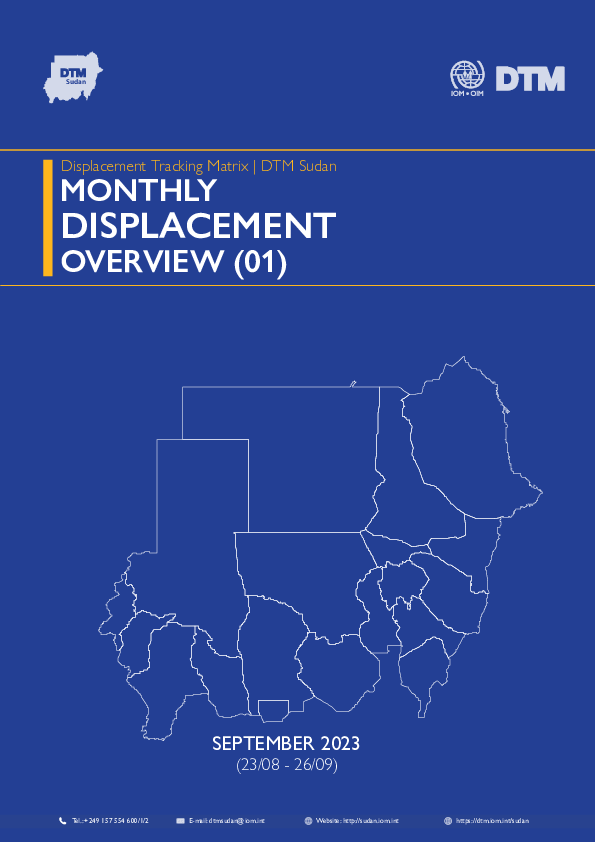-
Countries
-
Data and Analysis
-
Special Focus
-
Crisis Responses
DTM Sudan - Monthly Displacement Overview (01)

Contact
DTM Sudan, DTMSudan@iom.int
Language
English
Location
Sudan
Snapshot Date
Sep 26 2023
Activity
- Mobility Tracking
- Baseline Assessment
Overview
IOM DTM Sudan is pleased to present its first Monthly Displacement Overview. This publication provides an account of Sudan’s displacement context since 15 April 2023 – outlining population caseloads and movements, as well the present and evolving needs of Sudan’s growing IDP caseload.
Rationale
Recognizing the need for more detailed insights into the IDP situation, including the priority needs, access to services, movement intentions, and demographic breakdowns of the affected population, DTM Sudan has undertaken a comprehensive review of our data collection tool. In collaboration with a wide range of internal and external stakeholders, we have developed a new tool to better inform humanitarian response operations, aligning with the DTM global methodology. Leveraging our extensive network of approximately 300 field-based enumerators and a robust system of over 1500 key informants across the country, DTM has gathered data on IDPs across 4,080 locations, in 167 of Sudan’s 189 localities – across all of Sudan’s 18 states.
Key Findings
- DTM Sudan estimates that 4,295,092 Individuals (856,578 Households) have been recently internally displaced.
- IOM DTM also reports that an estimated 1,190,633 mixed cross-border movements have been made into neighbouring countries.
- During the previous month, field teams have reported heavy clashes between RSF and SAF forces in the capital, as well as the state capitals of South Darfur and North Darfur. Additionally, inter-communal conflicts have been observed across West Darfur.
- Since 15 April 2023, 45% of the IDP caseload has sought refuge in the Darfur and Kordofan regions, whereas the majority (55%) are observed across the Northern, Eastern, and Central states.
- Just over two-thirds of the IDP caseload are seeking shelter with the host community.
- While Food Security remains the highest priority need, Health and Non-Food Items are also growing concerns.
